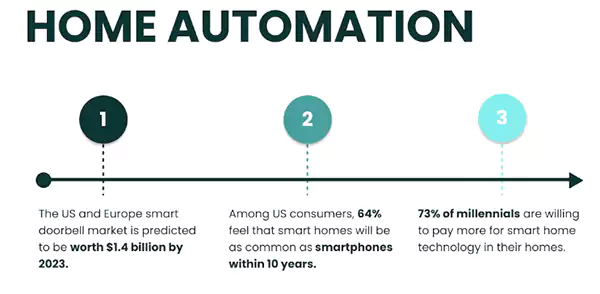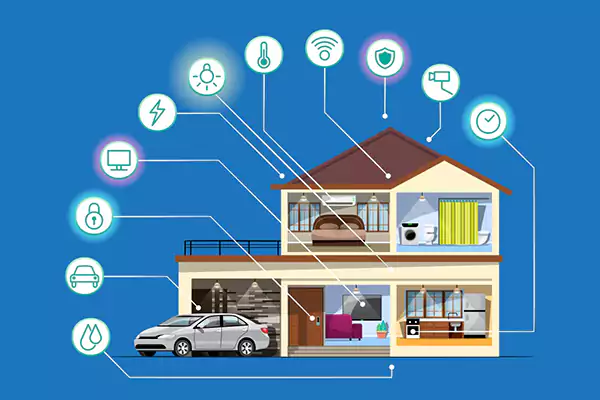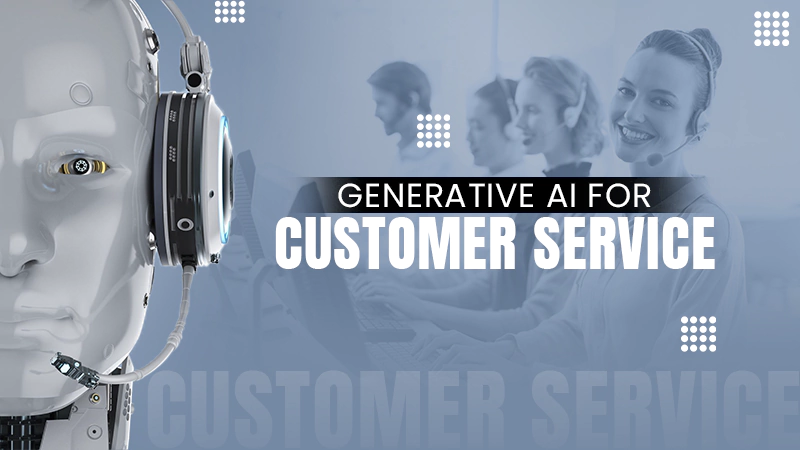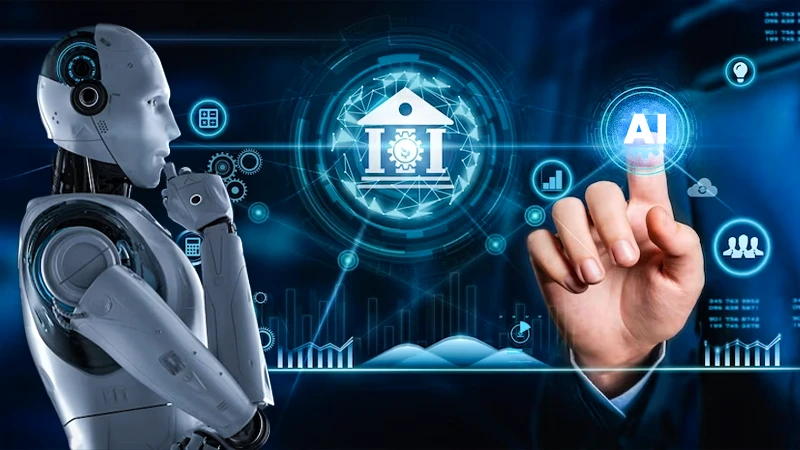
Artificial intelligence (AI) and machine learning (ML) have emerged as transformative forces in this ever-changing landscape of smart home technology.
These cutting-edge technologies are not only making our lives more convenient but are also enhancing the overall efficiency and functionality of our houses.
From predictive maintenance to personalized user experiences, they are reshaping the way we interact with our living spaces.
In this comprehensive blog post, we will delve deep into the world of AI and ML in home automation, exploring their applications, benefits, and the future they promise.
The concept of a “smart home” has evolved significantly in recent years. What was once a futuristic dream is now a reality, thanks to advancements in technology, particularly artificial intelligence and machine learning.
These technologies have opened up new horizons in transforming our place into electronic households, enabling them to adapt, learn, and respond intelligently to the needs and preferences of their occupants.
Understanding AI and Machine Learning
Before we dive into the ways they are transforming these automated houses, let’s briefly understand these technologies:
- Artificial Intelligence (AI): It refers to the simulation of human intelligence in appliances, allowing them to think, reason, and make decisions. It encompasses various subfields, including machine learning, natural language processing, and computer vision.
Do You Know?
From 2023 to 2030, the global AI market is expected to grow at a CAGR of 37.3%
- Machine Learning (ML): ML is a subset of AI that focuses on the development of algorithms and statistical models that enable computers to learn and improve from experience.
It allows systems to automatically learn and adapt without being explicitly programmed.
AI in Home Automation
Predictive Maintenance
One of the most significant contributions of Artificial intelligence is predictive maintenance. AI-powered tools can analyze data from various household appliances and devices to predict when maintenance or repairs are needed.
For example, a smart refrigerator and custom windows equipped with it can monitor their own performance and detect irregularities, alerting homeowners to potential issues before they lead to a breakdown.
This not only saves time and money but also prevents inconvenience.
Energy Management
AI-driven energy management systems are revolutionizing how we consume and conserve energy in our homes.
These apparatuses analyze energy usage patterns and adjust settings in real time to optimize energy consumption.
For instance, smart thermostats can learn your heating and cooling preferences and automatically adjust the temperature for maximum comfort and efficiency.

Security and Surveillance
Security cameras and systems that work on this technology are enhancing safety systems by leaps and bounds. They can distinguish between intruders and harmless movements, reducing false alarms.
Moreover, they can send real-time alerts to homeowners’ smartphones, enabling them to take immediate action in case of a security breach.
Machine Learning in Home Automation
Personalized User Experiences
Machine learning algorithms are making homes more user-centric by creating personalized experiences. These tools can learn individual preferences, such as lighting, temperature, and entertainment choices, and adjust settings accordingly.
For example, the lighting and temperature can be tailored to match your mood or time of day, creating a more enjoyable living environment.
Voice Recognition and Natural Language Processing
Voice assistants like Amazon’s Alexa and Google Assistant are powered by MI algorithms that enable natural language processing.
These devices can understand and respond to voice commands, making it easy to control various smart devices in your home.
You can simply say, “Alexa, dim the lights,” and the AI-powered system will execute the command.

Behavioral Analysis
ML algorithms can analyze behavioral patterns within a household. They can detect unusual activities or deviations from the norm, which can be especially useful for elderly individuals living alone.
If the system detects a potential issue, it can send alerts to family members or caregivers, ensuring the safety and well-being of the occupants.
Challenges and Concerns
While AI and ML bring tremendous benefits to domotics, they also raise vital challenges and concerns. Privacy and data security are paramount, as smart home devices collect vast amounts of personal data.
Ensuring the security of these machines and educating users about potential risks is pivotal.
The Future of AI and ML in Smart Homes

Their future in making our place fully automated holds immense promise. As technology continues to advance, we can expect:
- Greater Integration: Smart home devices will become even more seamlessly integrated into our daily lives, with AI and ML ensuring they work together harmoniously.
- Enhanced Energy Efficiency: Artificial intelligence algorithms will become even more adept at optimizing energy usage, reducing waste, and contributing to a greener future.
- Advanced Predictive Capabilities: Predictive maintenance and fault detection will become more precise, preventing breakdowns with higher accuracy.
- Deeper Personalization: ML will continue to refine user experiences, making homes truly responsive to individual preferences.
- Improved Security: AI-driven security systems will become smarter and more proactive, deterring potential threats effectively.
Conclusion
AI and machine learning are ushering in a new era of smart homes. These technologies are not only making our lives more convenient but also more efficient, secure, and personalized.
As they evolve, we can look forward to houses that anticipate our needs and adapt to our lifestyles seamlessly.
While challenges exist, their future is undeniably bright, promising a more connected, intelligent, and comfortable living environment for all.







